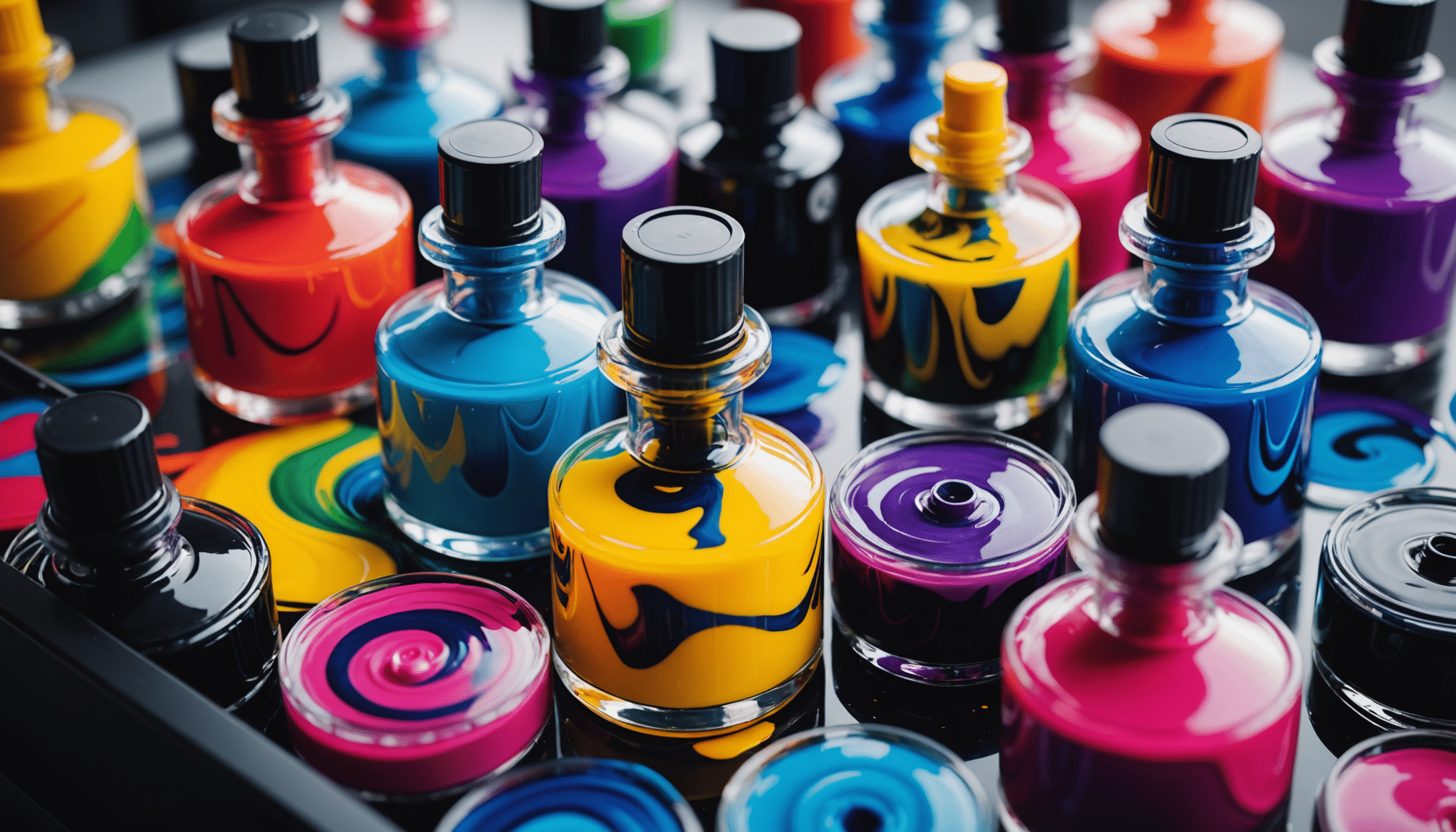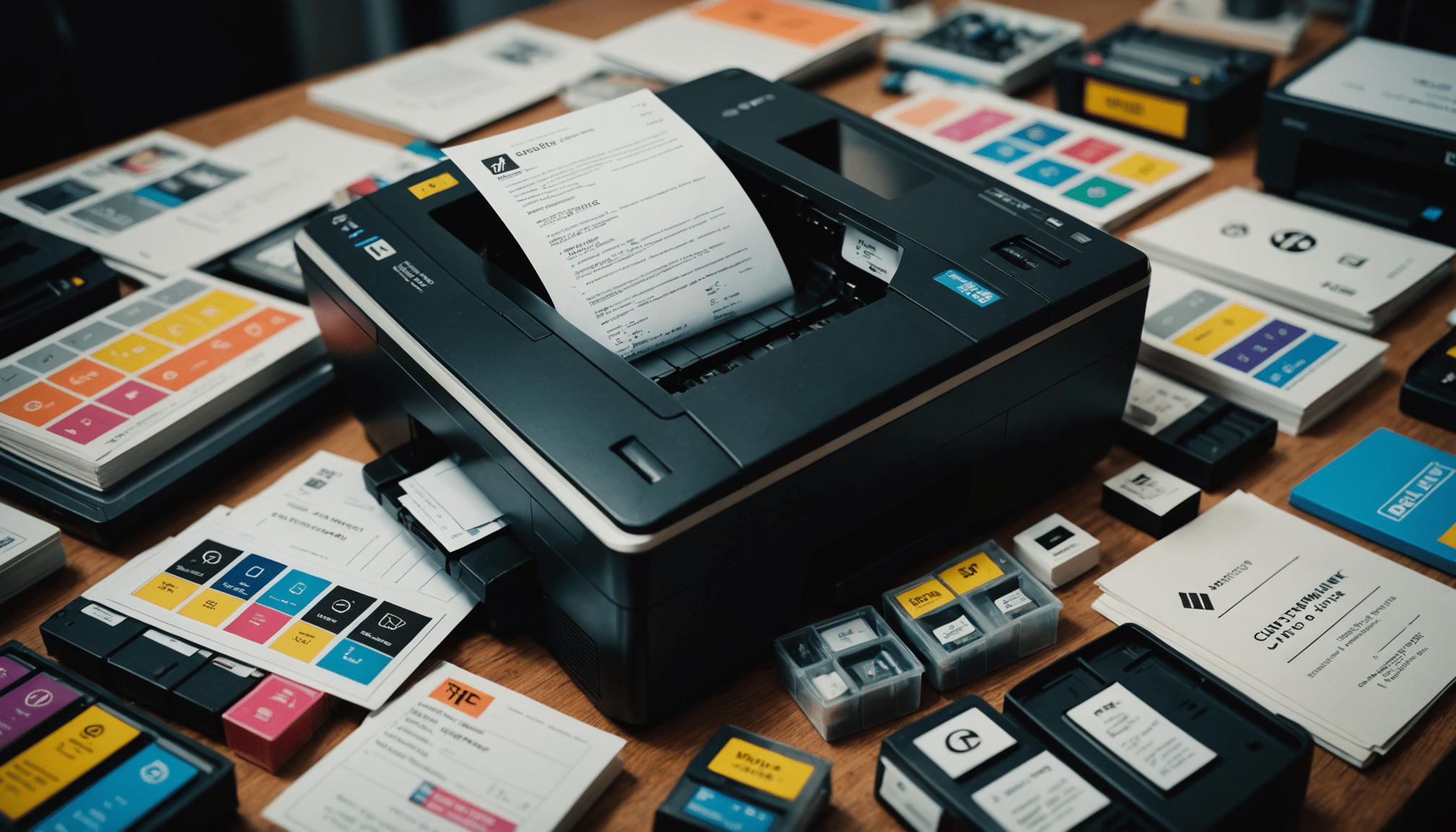
Can I Use a Different Brand of Ink in My HP Printer? Explore Now!
DISCOVER if using NON-HP ink in your HP printer is SAFE, RELIABLE, and COST-EFFECTIVE. Learn how to AVOID warranty troubles while CUTTING costs on print supplies.
Exploring alternative ink brands for HP printers raises questions about compatibility, reliability, and cost-effectiveness. Users often worry about printer performance and warranty implications, seeking assurance that non-HP inks meet expectations. Understanding these factors is essential to making informed choices while maintaining efficient printing and safeguarding printer integrity.
Can I use non-HP ink cartridges in my HP printer?
Yes, you can use non-HP ink cartridges in your HP printer. However, it might void the warranty, and compatibility or print quality could vary. Ensure the alternative is reliable and cost-effective by purchasing from reputable suppliers and checking for compatibility with your specific HP printer model.
Are Non-HP Inks a Safe Bet?
- Some third-party inks may be incompatible with HP printers.
- Using non-branded inks could risk voiding your warranty.
- Alternative inks can sometimes cause clogs or errors.
- Cost-effective options might require more frequent changes.
- Long-term savings depend on print volume and quality needs.
- Read reviews and check compatibility before buying.
- A cautious approach can ensure printer well-being.

Brand Compatibility and Printer Performance
Can you swap your HP ink cartridge for another brand? The ink world is a colourful place, and not all hues match. Each printer model dances to its own tune, needing specific formulations to print with perfection. Put simply, not all inks are created equal. Using an incompatible ink could result in a print job gone haywire—smeared text, faded colours, you name it. So, when considering third-party options, pause to check if they harmonise with your printer’s needs. After all, a good melody requires the right instrument.
Now, let’s address an elephant in the room: reliability. Third-party inks often promise the moon at a fraction of the cost, but do they deliver? Some users report stellar experiences, while others, well, not so much. Print quality is the proof in the pudding, and while many third-party inks strive for HP’s levels, others might hang you out to dry. The key lies in researching a product’s reviews and experiences.
Ultimately, understanding your printer’s specifications and choosing compatible ink ensures smooth operation. It’s like pairing the right wine with cheese—you want everything to work perfectly together. When in doubt, consider Viking’s own compatible ink cartridges. Designed to deliver excellent performance and value, they’re a reliable choice to meet your printing needs.
Warranty and Printer Damage Concerns
So, you’ve eyed those tempting third-party inks. But what about your HP printer’s warranty? The fine print can sometimes be murky, much like a poorly refilled cartridge. HP’s stance typically cautions against non-official inks, hinting that any damage from them could void your warranty. The risk is one of those grey areas that should prompt a double-check before diving in head first.
Printer longevity and well-being can be at stake, too. Some alternative inks just aren’t up to snuff, clogging nozzles or whispering sweet nothings to error messages. Such nuisances could mean a trip to the repair shop. Yet, savvy users can play it smart by running regular maintenance checks and keeping their warranties in mind. It’s a bit of a cost-benefit tango.
Legal stipulations regarding printer ink can vary, but awareness of what’s covered and what’s not is crucial. Treading the fine line of warranty and printer damage is like balancing on the edge of a printhead—handle with care! Ultimately, a cautious approach ensures your HP printer stays in top shape, regardless of the ink you employ.
Cost-Effectiveness of Alternative Inks
Moving on to matters of finance, alternative inks are often the budget-friendly alternatives compared to pricier branded ones. For the cost-conscious, these can be a godsend. Price tags vary wildly, but non-branded cartridges can offer competitive cost-per-page figures. It’s like finding a hidden gem in discount bins!
On the other hand, one must consider how frequently ink needs replacing. Sometimes cheaper inks mean more frequent purchases due to diminished capacity or quality. It’s a classic case of weighing short-term savings against the long haul. User perspectives often differ, with some touting these alternatives for their light load on wallets.
In the end, deciding on third-party options is similar to choosing between a cuppa or espresso: personal preference meets practicality. Review your print volume, quality needs, and budget, and go from there. Seek advice from other users, scour those reviews, and let your wallet and conscience guide you to the most effective path.
| Aspect | Details | Priority |
|---|---|---|
| Brand Compatibility | Check if the ink matches your printer. | High |
| Printer Warranty | Non-official inks might void the warranty. | High |
| Print Quality | Third-party inks can vary in effectiveness. | Medium |
| Cost-Effectiveness | Alternative inks often cost less but vary. | Medium |
| Ink Longevity | Cheaper inks might require more frequent replaces. | Low |
Conclusion
At Viking, we understand the importance of making informed choices for your workplace. Using a different brand of ink in your HP printer can be an environmentally friendly and cost-effective decision, aligning perfectly with our mission to provide efficient workplace solutions.
Choosing compatible ink not only preserves your budget but also enhances productivity. We are here to assist you in navigating these choices, ensuring that you can maintain an ideal work environment while staying mindful of both cost and quality.
Frequently Asked Questions
Will using non-HP ink cartridges void my printer warranty?
Using alternative brand ink cartridges will not automatically void your HP printer’s warranty. However, if a fault occurs due to the third-party cartridge, repairs may not be covered under the warranty. You must ensure that the ink type and size are compatible with your specific printer model to avoid potential issues while using non-HP inks.
Are third-party ink cartridges reliable for HP printers?
Third-party ink cartridges can be reliable, but it depends on the brand quality and compatibility with your specific HP printer model. Some users report satisfactory performance with alternative inks, while others face issues such as print quality degradation or leakage. It is advisable to purchase from reputable suppliers and read reviews to gauge user experiences with specific brands.
Are third-party ink cartridges cost-effective compared to HP originals?
Third-party ink cartridges are generally more cost-effective compared to HP originals, often providing similar page yields and quality at a lower price. However, this can vary significantly based on the supplier and the specific printer model. Cost savings should be weighed against potential risks such as printer damage or diminished print quality when considering non-HP inks.
What are the environmental impacts of using third-party cartridges?
Using third-party cartridges can have varied environmental impacts. Some suppliers offer eco-friendly options with recycled materials, reducing waste. However, others may not adhere to the same environmental standards as original manufacturers. It is advisable to choose suppliers that prioritise sustainability and recycling, and properly dispose of used cartridges to minimise environmental harm.











